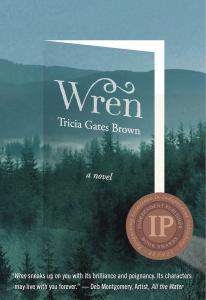
In his book Outliers: The Story of Success, author Malcolm Gladwell tells about a mid-century Pennsylvania town called Roseto.[1] In the 50s, this town was populated entirely of people who’d come from a single Italian village. A young medical doctor who came to know this Pennsylvania community was baffled by the low incidence of disease in the village—including heart disease, which at the time was rampant in the US. He arranged to have researchers study the town. They were surprised to discover the people of Roseto, Pennsylvania didn’t have an especially healthy diet, didn’t refrain from smoking, and often carried too much weight. So, what explained their excellent health?
In 2009, a doctor writing for the medical journal The Canadian Family Physician (v.55[7]:768), summarized the conclusions of those researchers. He wrote:
With no answers offered by the medical research team, social scientists were consulted. They described a unique sharing of experiences that defined the town’s social structure. They discovered a feeling of trust and security among Rosetans because the people of the town always had someone they knew and who knew them to turn to for support. They concluded that the extraordinary health of this unique population could only be explained in terms of ‘extended family’ and ‘community.’
Today, many analysts strive to explain the exponential rise of division in our country. One thing I hear again and again is that adherents to extreme, highly polarized groups find in them identity, community, belonging, and meaning; and the adherents of these groups often describe their feelings about movements as ‘like being part of a family.’ Whereas on one hand, trends show that Americans are increasingly isolated and lonely (8% of people report having no close friends; a further 21% have only 1 or 2 close friends), Americans highly value friendship. Being part of a group that lends one a feeling of family or belonging is extremely attractive.

Called into Healthy Community
In this Sunday’s lectionary reading, Jesus asks Peter and Andrew to drop everything and follow him. He says they will find meaning and purpose in following: they will become “fishers of men.” But I also see how Jesus is inviting them into a community, into belonging. The passage specifically says that when called, James and John leave their father in the boat and turn to follow Jesus. In joining Jesus, they find a belonging even deeper than family. It is a brief story, but it narrates a crux or turning point for figures who became central to the Jesus movement. Without understanding how important belonging and community are to human flourishing, it’s difficult to reconcile their decisions to give up their lives. As did so many.
We live in a time of great insecurity and unwellness. Historians explain that people in such precarious times become vulnerable to unhealthy community: to cults, conspiracy movements, groups formed around false narratives, and so forth. In our day, the ease of connection through online groups, along with the algorithms of social media, accelerate this trend toward unhealthy aggregations, unhealthy community. So it’s more important than ever that we seek out and solidify healthy social ties, however challenging.
Many of the organizations that formerly facilitated healthy community, including the church, see declining numbers. We are forced to work that much harder to carve out opportunities for real connection. My hope is that glaring divisions and isolation taking hold in our country might stoke in us a more ardent desire for true friendship, diverse community, and meaningful belonging around principles of kindness, love, generosity and trust—in the way we appreciate something more when it’s falling away (“you don’t know what you’ve got till it’s gone,” as Joni Mitchell wrote). For the sake of our own wholeness and healing, and that of others—even that of our country, we need healthy community. We need to belong.
[1] A thanks to Reverend Dawn Hutchings’ blog for bringing this story to my attention.
Wren, winner of a 2022 Independent Publishers Award Bronze Medal
Winner of the 2022 Independent Publisher Awards Bronze Medal for Regional Fiction; Finalist for the 2022 National Indie Excellence Awards. (2021) Paperback publication of Wren , a novel. “Insightful novel tackles questions of parenthood, marriage, and friendship with finesse and empathy … with striking descriptions of Oregon topography.” —Kirkus Reviews (2018) Audiobook publication of Wren.















